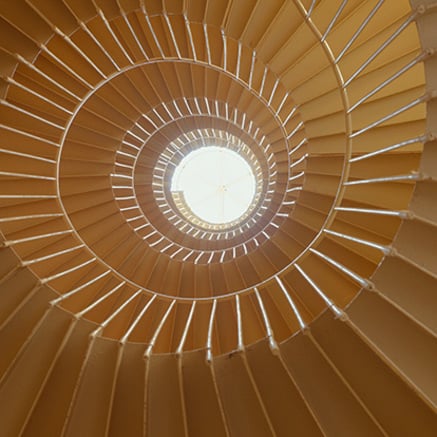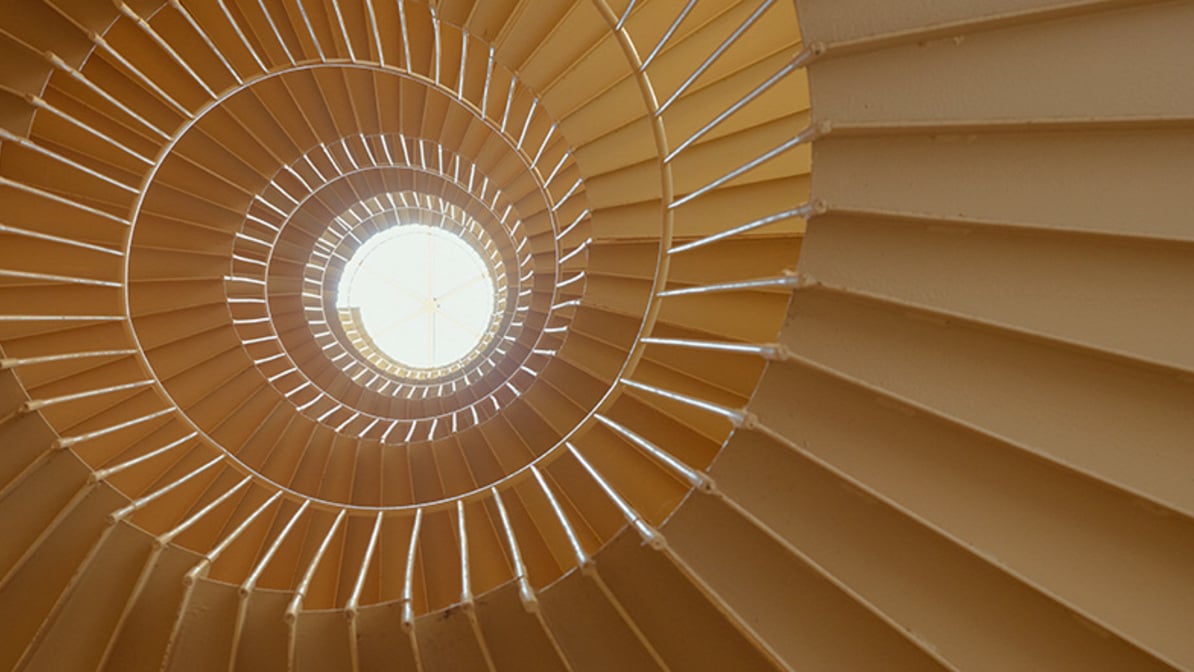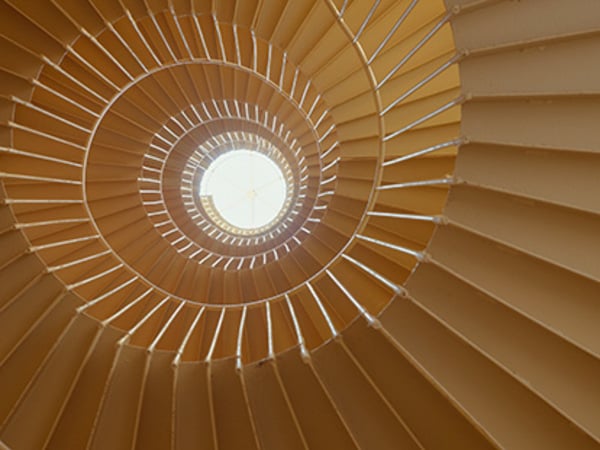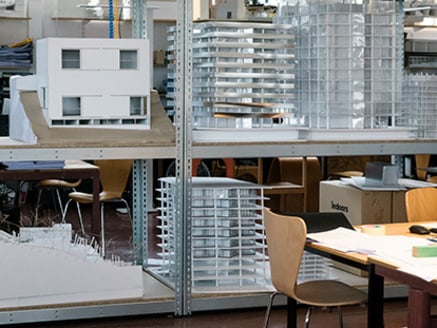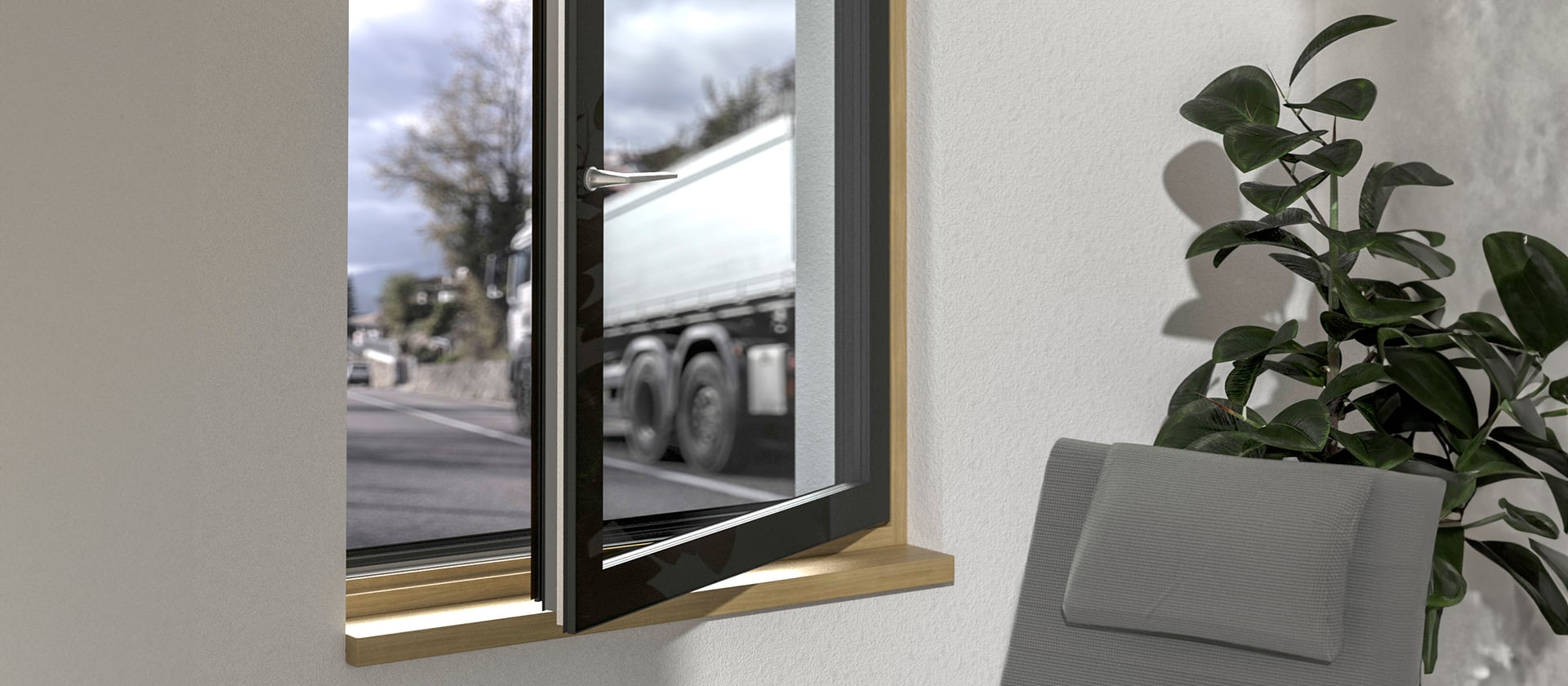
“The window plays a key role in sound insulation.”
Ruben Erlacher: quiet
Too much noise can make you ill. Absolute silence triggers a feeling of discomfort. The optimum quality for a living area thus lies somewhere in between. It is obvious that windows are important for noise protection. Many owners are not aware that it is not just high-quality sound insulation glass that is the answer. Engineer Ruben Erlacher argues that, when selecting the right windows, the frame design and the installation must always be kept in mind.
Is your aim to permit as little sound as possible to enter the room?Ruben Erlacher: In principle, yes. The sound insulation, i.e. the acoustic quality of a building, is after all one of the most important aspects for house-building or refurbishments. But the façade should not be excessively insulated against outside noise because, the quieter the room, the more you notice low-level noise sources. We need a certain form of acoustic link to the outside world, but it should lie below the standard values.
Because too much noise can make you ill...Exactly. A constant noise level, for example, can cause high blood pressure. We are exposed to round-the-clock noise in cities in particular. This makes our need for rest all the greater, meaning we can relax within our own four walls. And that is why sound insulation between residences and towards the outside is so important.
Noise is perceived very subjectively…You can even say: the worst noise is the one that you don’t want to hear. Whatever that might be: a mosquito at night, or the sound of the main road. And it is precisely because noise is perceived so subjectively that it is important to have the sound level measured by experts. This permits the acoustic disturbance to be evaluated objectively. Is the noise within the permitted level or above it?
What types of sound are there?The two most important types are airborne sound and structure-borne sound. Airborne sound is noise transmitted through the air, such as music or street noise. Structure-borne sound is transmitted via parts of a building. Examples are the sound of footsteps on a ceiling, or furniture being moved. Another subtype of structure-borne sound is installation noise, e.g. toilets flushing, garage doors, roller blinds, air-conditioning or radiators.
How does airborne sound get inside?Noise can penetrate anywhere there are weak spots. Most of the time these are the windows, a complex component with many tasks to perform – and often aged and accordingly leaky. In addition, window areas are getting increasingly bigger. This is basically a good thing, as more light comes into the room. However, this makes the window more important when it comes to sound insulation. The window is clearly the most important component of the façade. Which also includes sound insulation.
As a householder, what choices can I make for my windows in order to make my home as quiet as possible?A window’s quality is result of the interplay of the glass, frame and installation situation. Most people only pay attention to the sound insulation offered by the glazing. This is fatal, however, because the frame design and how well the window is installed have a great effect on the sound insulation. So you should always pay attention to the glass, frame and installation situation – and don’t forget the roller box. It must also be airtight and properly constructed, otherwise the noise will find its way through this weak point and indoors.
When is it useful to measure sound insulation?The acoustic quality of a building is one of the most important points when building a house. In this respect, I always recommend sound planning, for new builds and especially for refurbishments. This allows real improvements to be made – not just a random figure, but one with a technical basis. The desired sound level is calculated room by room. The windows are then selected accordingly.
Is your aim to permit as little sound as possible to enter the room?Ruben Erlacher: In principle, yes. The sound insulation, i.e. the acoustic quality of a building, is after all one of the most important aspects for house-building or refurbishments. But the façade should not be excessively insulated against outside noise because, the quieter the room, the more you notice low-level noise sources. We need a certain form of acoustic link to the outside world, but it should lie below the standard values.
Because too much noise can make you ill...Exactly. A constant noise level, for example, can cause high blood pressure. We are exposed to round-the-clock noise in cities in particular. This makes our need for rest all the greater, meaning we can relax within our own four walls. And that is why sound insulation between residences and towards the outside is so important.
Noise is perceived very subjectively…You can even say: the worst noise is the one that you don’t want to hear. Whatever that might be: a mosquito at night, or the sound of the main road. And it is precisely because noise is perceived so subjectively that it is important to have the sound level measured by experts. This permits the acoustic disturbance to be evaluated objectively. Is the noise within the permitted level or above it?
What types of sound are there?The two most important types are airborne sound and structure-borne sound. Airborne sound is noise transmitted through the air, such as music or street noise. Structure-borne sound is transmitted via parts of a building. Examples are the sound of footsteps on a ceiling, or furniture being moved. Another subtype of structure-borne sound is installation noise, e.g. toilets flushing, garage doors, roller blinds, air-conditioning or radiators.
How does airborne sound get inside?Noise can penetrate anywhere there are weak spots. Most of the time these are the windows, a complex component with many tasks to perform – and often aged and accordingly leaky. In addition, window areas are getting increasingly bigger. This is basically a good thing, as more light comes into the room. However, this makes the window more important when it comes to sound insulation. The window is clearly the most important component of the façade. Which also includes sound insulation.
As a householder, what choices can I make for my windows in order to make my home as quiet as possible?A window’s quality is result of the interplay of the glass, frame and installation situation. Most people only pay attention to the sound insulation offered by the glazing. This is fatal, however, because the frame design and how well the window is installed have a great effect on the sound insulation. So you should always pay attention to the glass, frame and installation situation – and don’t forget the roller box. It must also be airtight and properly constructed, otherwise the noise will find its way through this weak point and indoors.
When is it useful to measure sound insulation?The acoustic quality of a building is one of the most important points when building a house. In this respect, I always recommend sound planning, for new builds and especially for refurbishments. This allows real improvements to be made – not just a random figure, but one with a technical basis. The desired sound level is calculated room by room. The windows are then selected accordingly.
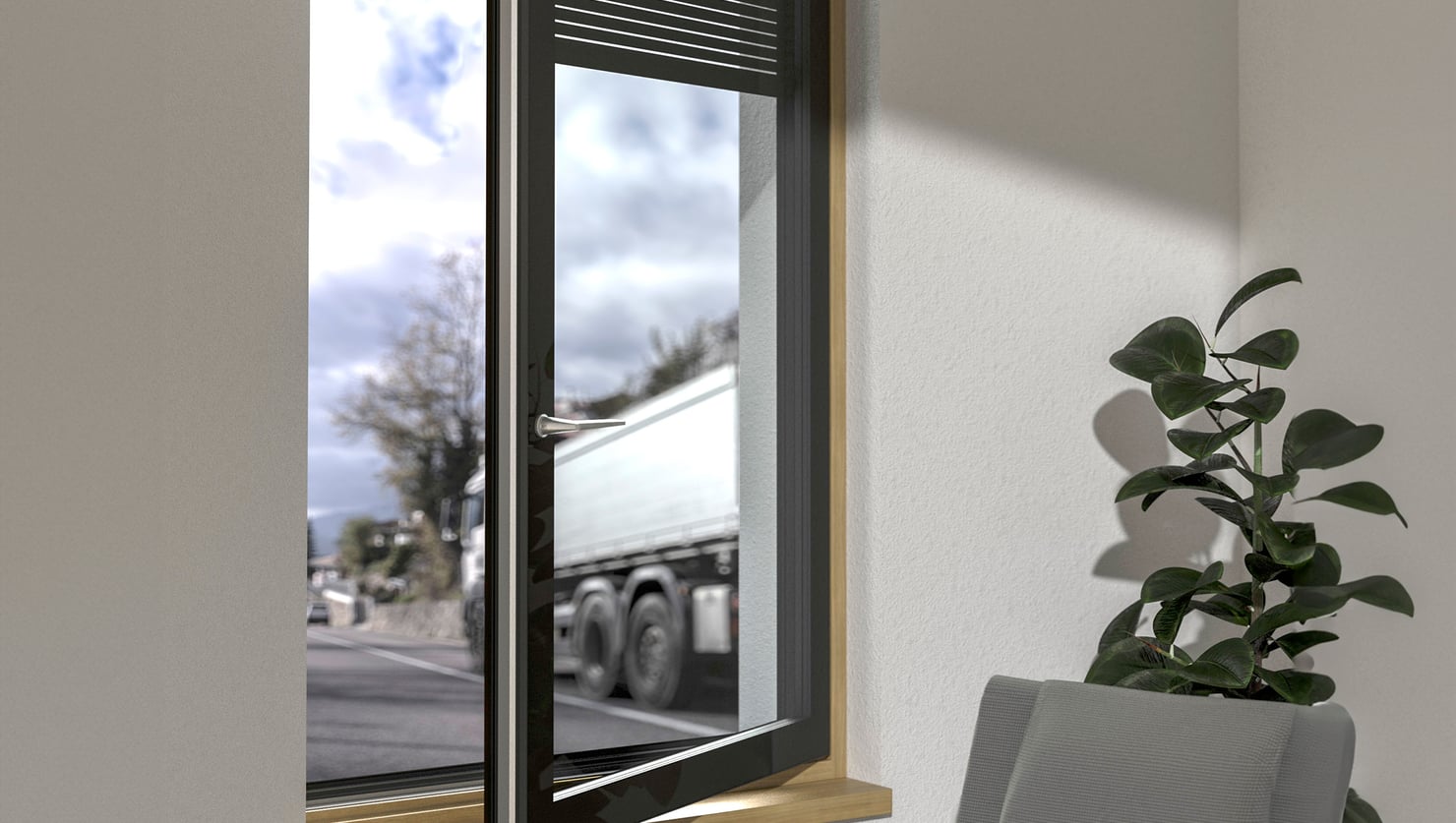
Our standard windows are designed to be form-fitting and are always professionally installed to ensure the best sound insulation level of 32 to 47 dB.

At his architectural and engineering office in South Tyrol, Ruben Erlacher works on the sound insulation of buildings.
Still want more?
See here for further interesting reading matter.
